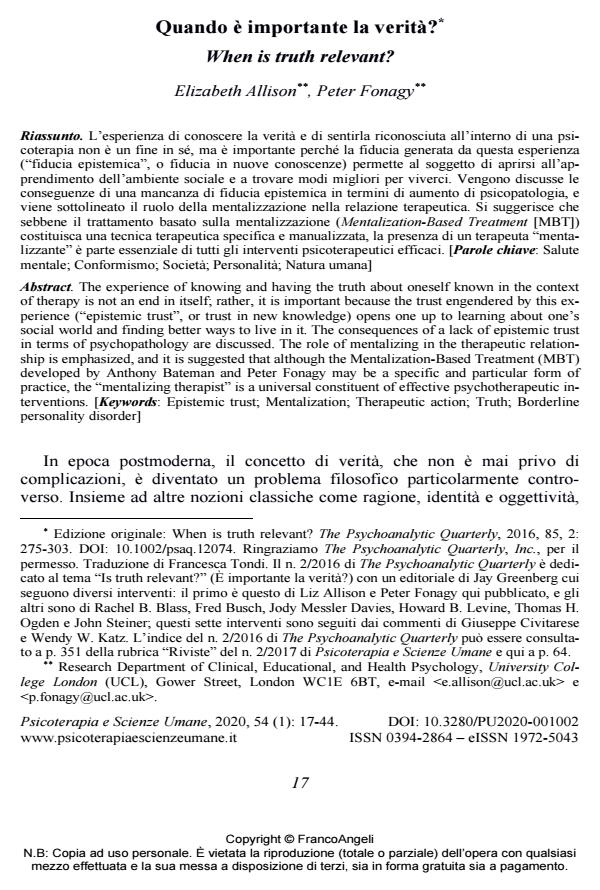When is truth relevant?
Journal title PSICOTERAPIA E SCIENZE UMANE
Author/s Elizabeth Allison, Peter Fonagy
Publishing Year 2020 Issue 2020/1
Language Italian Pages 28 P. 17-44 File size 152 KB
DOI 10.3280/PU2020-001002
DOI is like a bar code for intellectual property: to have more infomation
click here
Below, you can see the article first page
If you want to buy this article in PDF format, you can do it, following the instructions to buy download credits

FrancoAngeli is member of Publishers International Linking Association, Inc (PILA), a not-for-profit association which run the CrossRef service enabling links to and from online scholarly content.
The experience of knowing and having the truth about oneself known in the context of therapy is not an end in itself; rather, it is important because the trust engendered by this experience ("epis-temic trust", or trust in new knowledge) opens one up to learning about one’s social world and finding better ways to live in it. The consequences of a lack of epistemic trust in terms of psycho-pathology are discussed. The role of mentalizing in the therapeutic relationship is emphasized, and it is suggested that although the Mentalization-Based Treatment (MBT) developed by Anthony Bateman and Peter Fonagy may be a specific and particular form of practice, the "mentalizing therapist" is a universal constituent of effective psychotherapeutic interventions.
Keywords: Epis-temic trust; Mentalization; Therapeutic action; Truth; Borderline personality disorder
Elizabeth Allison, Peter Fonagy, Quando è importante la verità? in "PSICOTERAPIA E SCIENZE UMANE" 1/2020, pp 17-44, DOI: 10.3280/PU2020-001002